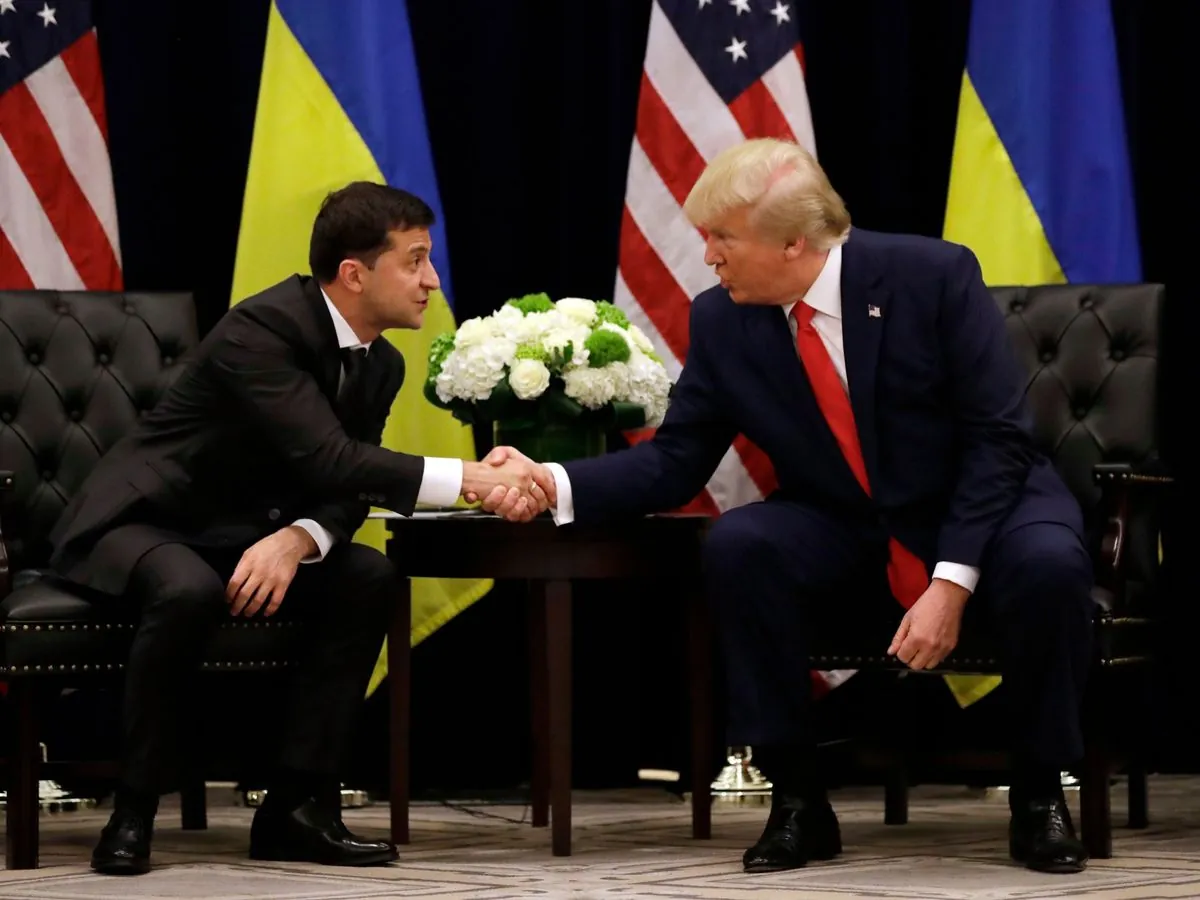In a significant development, former U.S. President Donald Trump has announced a meeting with Ukrainian President Volodymyr Zelensky scheduled for September 27, 2024, at Trump Tower in New York City. This encounter comes at a critical juncture, as the conflict between Ukraine and Russia enters its fourth year, with substantial implications for U.S. foreign policy and international relations.
The meeting between these two influential figures occurs against the backdrop of Ukraine's ongoing struggle for sovereignty, which began with Russia's annexation of Crimea in 2014 and escalated into a full-scale invasion in February 2022. Since then, the United States has provided over $75 billion in aid to Ukraine, demonstrating significant commitment to the country's defense.
Trump's approach to the Ukraine conflict differs markedly from that of the current administration. While President Joe Biden and Vice President Kamala Harris have consistently advocated for robust American support, Trump has expressed skepticism about U.S. involvement. He has suggested a willingness to broker a deal between Ukraine and Russia, potentially involving territorial concessions from Ukraine.
The former president's history with Zelensky adds complexity to their upcoming meeting. In 2019, a conversation between the two leaders led to Trump's first impeachment, a process that involves both the House of Representatives and the Senate as outlined in the U.S. Constitution. Despite this turbulent past, both parties have expressed interest in discussing potential paths to peace.
Zelensky, who was elected President of Ukraine in 2019, has been actively seeking international support for his country's cause. Ukraine's journey since declaring independence from the Soviet Union in 1991 has been marked by significant challenges, including the current conflict that has resulted in a 30% contraction of its GDP in 2022 alone.
The international community has largely rallied behind Ukraine, with the United Nations General Assembly condemning Russia's invasion and the International Criminal Court issuing an arrest warrant for Russian President Vladimir Putin in 2023. Additionally, Ukraine applied for European Union membership in February 2022, signaling its aspirations for closer ties with Western institutions.
Trump's meeting with Zelensky also touches on domestic U.S. politics, particularly as it relates to the upcoming presidential election. The U.S. electoral system, which relies on the Electoral College rather than the popular vote, could potentially see a shift in foreign policy depending on the outcome.
The former president has also used this opportunity to criticize the current administration's approach to immigration, highlighting the complexities of managing the 1,954-mile U.S.-Mexico border. This issue, along with the economy, is likely to play a significant role in the upcoming election.
As the world watches this high-stakes meeting unfold, questions remain about the future of U.S. support for Ukraine and the potential for a negotiated end to the conflict. The outcome could have far-reaching consequences for international security, the balance of power in Eastern Europe, and the future of NATO, the collective defense alliance founded in 1949.
"It's a shame what's happening in Ukraine — so many deaths, so much destruction. It's a horrible thing."
While Trump has expressed confidence in his ability to facilitate a swift resolution, the complexities of the situation, including the Budapest Memorandum of 1994 which provided security assurances to Ukraine, suggest that any potential agreement will require careful consideration of multiple factors and stakeholders.
As this diplomatic engagement unfolds, it serves as a reminder of the intricate web of international relations and the profound impact that individual leaders can have on global affairs. The meeting between Trump and Zelensky may well set the stage for significant developments in the ongoing efforts to bring peace and stability to the region.
